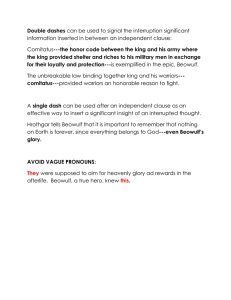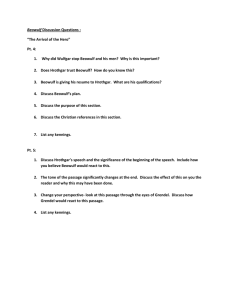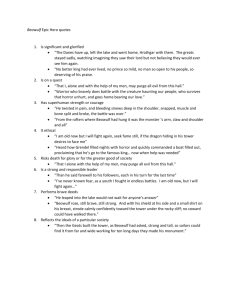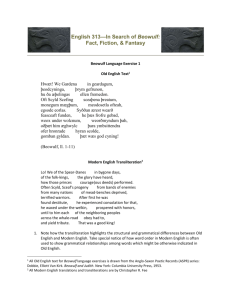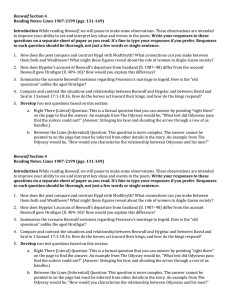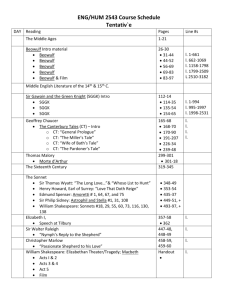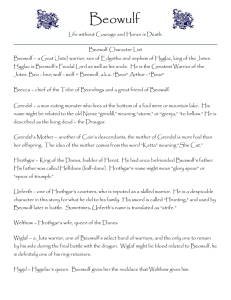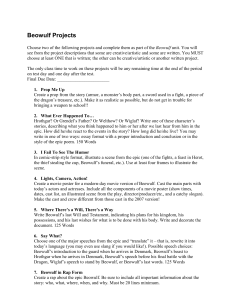File
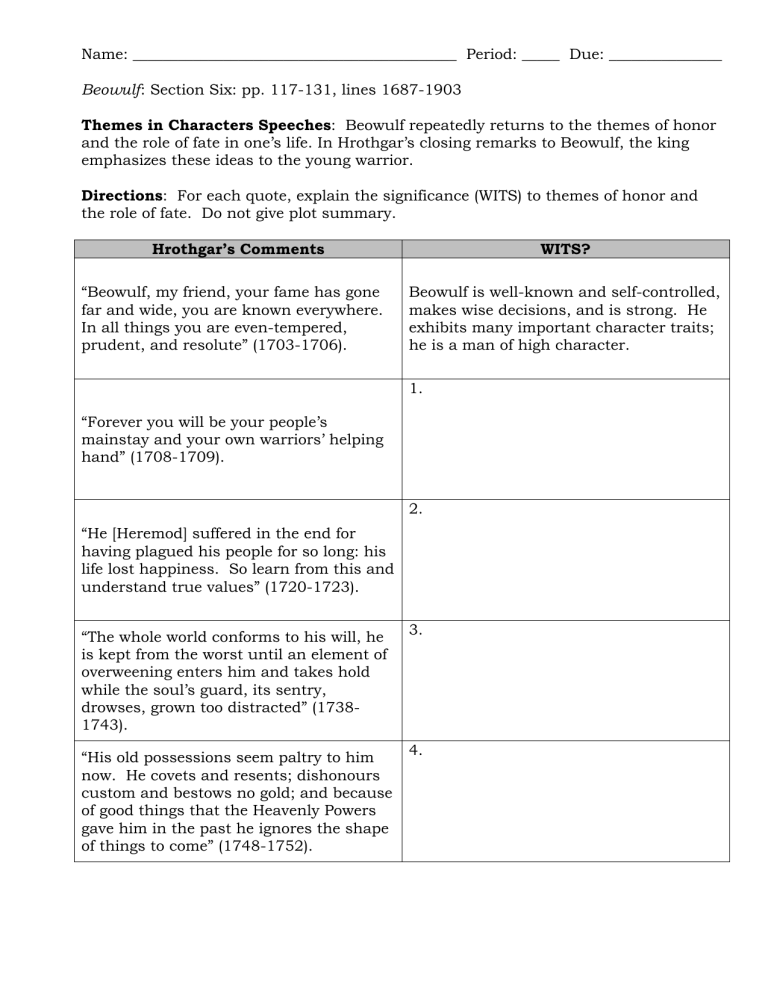
Name: ___________________________________________ Period: _____ Due: _______________
Beowulf: Section Six: pp. 117-131, lines 1687-1903
Themes in Characters Speeches: Beowulf repeatedly returns to the themes of honor and the role of fate in one’s life. In Hrothgar’s closing remarks to Beowulf, the king emphasizes these ideas to the young warrior.
Directions: For each quote, explain the significance (WITS) to themes of honor and the role of fate. Do not give plot summary.
Hrothgar’s Comments WITS?
“Beowulf, my friend, your fame has gone far and wide, you are known everywhere.
In all things you are even-tempered, prudent, and resolute” (1703-1706).
Beowulf is well-known and self-controlled, makes wise decisions, and is strong. He exhibits many important character traits; he is a man of high character.
1.
“Forever you will be your people’s mainstay and your own warriors’ helping hand” (1708-1709).
“He [Heremod] suffered in the end for having plagued his people for so long: his life lost happiness. So learn from this and understand true values” (1720-1723).
2.
“The whole world conforms to his will, he is kept from the worst until an element of overweening enters him and takes hold while the soul’s guard, its sentry, drowses, grown too distracted” (1738-
1743).
3.
“His old possessions seem paltry to him now. He covets and resents; dishonours custom and bestows no gold; and because of good things that the Heavenly Powers gave him in the past he ignores the shape of things to come” (1748-1752).
4.
“Choose, dear Beowulf, the better part, eternal rewards. Do not give way to pride”
(1759-1760).
5.
“For a brief while your strength is in bloom but it fades quickly; and soon there will follow illness or the sword to lay you low, or a sudden fire or surge of water or jabbing blade or javelin from the air or repellent age” (1761-1766).
6.
7.
“Your piercing eye will dim and darken; and death will arrive, dear warrior to sweep you away” (1766-1768)
“I came to believe my enemies had faded from the face of the earth. Still, what happened was a hard reversal from bliss to grief” (1772-1775),
8.
